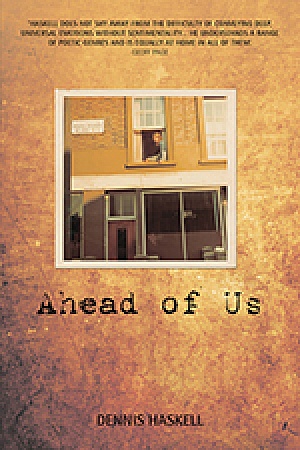The Aviary
Edwards & Shaw, 99 pp
Recognitions
A.N.U. Press, 73 pp, $5.95
Disappointing Poetry Collections
Probably not too many would quarrel with Evan Jones’ light-hearted description of himself as ‘one of our twenty best-known poets under forty in some views…’ Though closer now to fifty than forty, Jones in his three books so far has shown himself to be one of those academic poets of great fluency in traditional forms, capable of whipping up a cigar-and-port entertainment at a moment’s notice – but also capable of genuinely moving poems.
In these more serious moments, Jones has a manner reminiscent in some degree of Robert Lowell and Philip Larkin – a confessional use of detail allied to a certain flatness of surface. A typical concern of these poems is the need, in the midst of so much dullness and transience, to focus and hang on to the small moments of transcendence and human contact allowed to us.
In his second book, Understandings, this emphasis often led to poems of some real lyrical force, as for instance in ‘A Line from Keats’ (in Jones’ formal vein) and ‘Generations’ (in a more colloquial style). Less lyrical but equally powerful, mainly for their acuteness of social observation, were poems such as ‘The Divorcees’, ‘Hostel’ and ‘At the Airport’.
Now after eleven years Evan Jones has published a third book, Recognitions, which only rarely reaches the level of the best poems in his second. Admittedly in that earlier book there were quite a number of very light pieces – but to some extent this was offset by the seriousness and ambition of his long political narrative poem, ‘A Dream of Barricades’ which took up the last nineteen pages of the book. In Recognitions the lightness runs on for pages at a time – incidental jottings to friends, whimsical communications with the ageing self, etc. – and there’s not very much to balance it. More ambitious pieces such as ‘Elegy for a City’ and ‘Death of a House’ tend to slump disconcertingly in mid-flight.
He had enough foresight to buy a lot of land
round about here. He sold it:
too soon to make a killing, late enough
to make early retirement feasible, while
his second son as junior partner worked
harder than he ever had at their real estate
business . . .
(‘Death of a House’)
That minefield between verse and prose which a poet like Robert Lowell could dance on with ease has been rather stumbled across here.
There are some marital and domestic poems, (e.g. ‘To Catherine, aged 5 months’ and ‘Eight Weeks Old’) which have an affecting sincerity but in this third book Jones is probably at his best in a poem such as ‘Elegy for Kate Mackenzie’ which reads like an excellent Saturday page interview / article with the added grace of verse. Certainly, it’s a fine evocation of a particular moment and person.
Kenneth Mackenzie, incidentally (Kate’s husband), would seem to be an important figure for Jones. Dying prematurely, back in 1955, Mackenzie was a vital, if unfulfilled, poet whose intensity Evan Jones celebrates in one of the book’s most substantial and delicate poems – an intensity which rather contrasts with the increasingly grey manner of Jones' own more recent poetry.
In general, the poems of Peter Skrzynecki give one the uncomfortable impression that they ought to be better than they are. Their raw material sounds promising (experiences as a migrant child, years as a teacher in remote country schools); their seriousness of intent is obvious. Yet somehow, probably for technical rather than conceptual reasons, they frequently fail to satisfy.
In a review of Skrzynecki’s third book, Immigrant Chronicle, Thomas Shapcott observed: ‘Everywhere there is a brooding sense of darkness and unease, and of the need for celebration in the face – in defiance of – the dark forces. This has always been a quality of Skrzynecki’s verse, but it is now attaining the wholeness of a vision.’
This is a fair comment as far as it goes. Unfortunately, the poems expressing this vision often do so less than forcefully because of their weakness as poems.
One problem is that, despite their frequently generous use of imagery, Skrzynecki’s poems quite often have a disconcertingly prose-like feel about them. There may be several reasons for this. One is Skrzynecki’s peculiar concept of line; another is his tendency to write at times almost arhythmically. Take this stanza from ‘My Father’s Birthday’, for instance:
Or simply
That I’ve grown up
Unprepared
To face a future
That will not include
His physical presence
Permanently.
Or this one from ‘Sailing to Australia’:
Leaving from
A Displaced Person’s Camp
In Germany,
We travelled south
By train into Italy.
It’s difficult to escape the feeling that the function of the short line here is to disguise the prose underneath. There is rhythm of a kind but it’s not one which particularly reinforces the bleakness of the statement. James McAuley’s ‘On the Western Line’ poems have something of the same plainness of tone but there’s no mistaking whether they’re poetry or prose.
My father and my mother never quarrelled.
They were united in a kind of love
As daily as the Sydney Morning Herald,
Rather than like the eagle or the dove.
In Peter Skrzynecki’s more telling poems (e.g. ‘Parents’, ‘Stan Kostka’, ‘The Hired Lady’s Son’), there is some concreteness, some eye for the significant detail.
They stand at the gate
like a part of the garden itself –
Waving through shadows
Already between us:
The last words spoken
Five minutes ago
In the silence of an empty garage.
(‘Parents’)
In a poem like ‘Elegy for Kate’ things don’t go so well. Abstract nouns, vagueness and cliches win the day.
…How time and circumstance.
Fused into moments
Of absolute joy.
The incomprehensible logic
Of heart to heart
Speaking
In stolen glances.
In general The Aviary is a disappointing book. There is enough in it to make one realise how much better it might have been.











Leave a comment
If you are an ABR subscriber, you will need to sign in to post a comment.
If you have forgotten your sign in details, or if you receive an error message when trying to submit your comment, please email your comment (and the name of the article to which it relates) to ABR Comments. We will review your comment and, subject to approval, we will post it under your name.
Please note that all comments must be approved by ABR and comply with our Terms & Conditions.